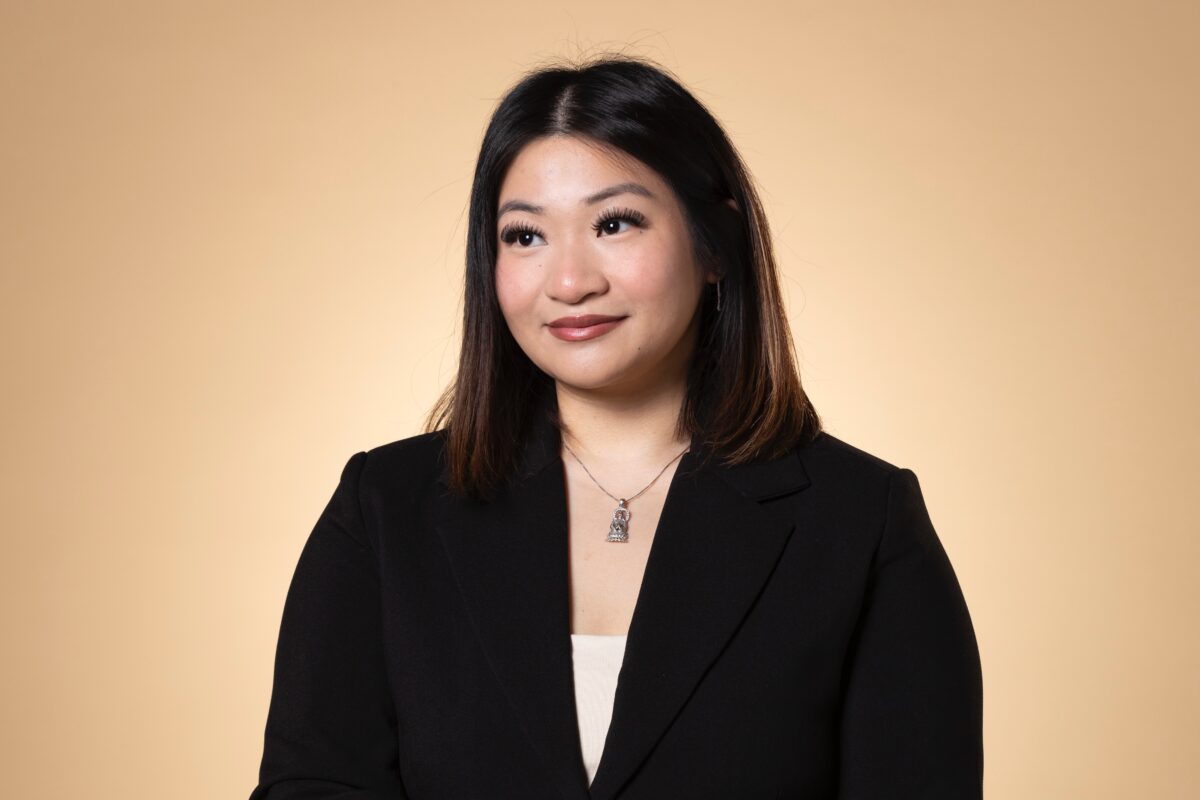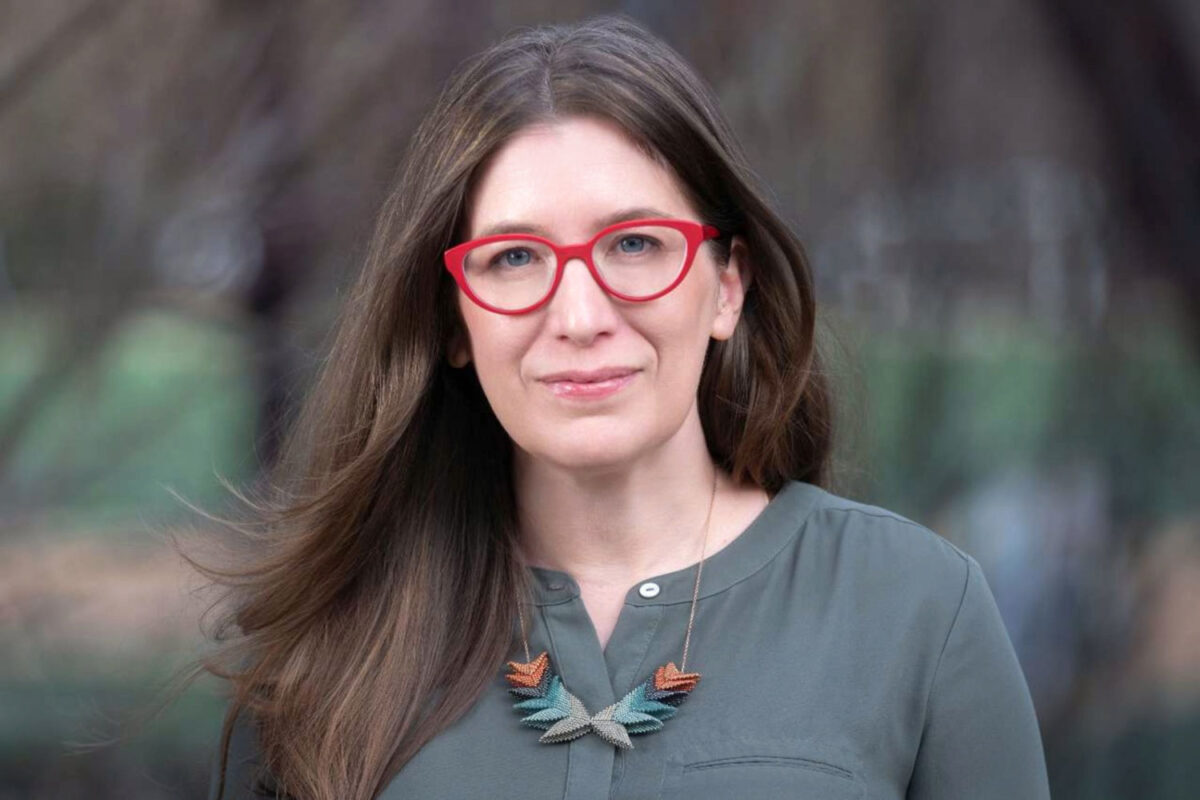Be humble, stay grounded and never forget where you came from originally.
These are the three rules 2023 alumna Vivian Hoang lives by — and with them, she has become the first person in her family to graduate college. “As a Vietnamese American, first-generation student from a single-parent household, this journey was anything but easy,” Hoang said. “However, I knew and understood what it meant to take the initiative and responsibility for my own education.”
Hoang gives credit as well to the College Possible program, a nonprofit organization focused on making college admission and success possible for low-income students. With its help, she was able to get into the University of Washington Bothell and find her passion in business marketing. “I really struggled at first and didn’t feel like I belonged,” Hoang said, noting that she had to overcome a number of adversities, including imposter syndrome. “The program really helped me find myself and my purpose.”
Committed to passing on the same kind of guidance and support she received, Hoang became a peer coach and later, the peer coach program intern. She also served as co-chair of the Student Technology Fee Committee, and as founder and president of the Karaoke Club. In recognition of all she contributed to the campus community, she was named one of the UW’s 2023 Husky 100 honorees.
Each year, the University of Washington recognizes 100 undergraduate and graduate students in all areas of study from the Bothell, Seattle and Tacoma campuses who are making the most of their time at the UW.
Paying it forward
Husky 100 students actively connect what happens inside and outside of the classroom and then apply what they learn to make a difference on campus, in their communities and across the world.
“There are undoubtedly thousands of students who could positively represent UW, but Vivian embodies what it means to grow through the Husky experience,” said Emily Leonard, the UW Bothell transition program manager who recommended Hoang for the honor. “She is an exceptional leader who encourages others to become advocates and change makers on campus and beyond.”
As a peer coach, Hoang helped more than 100 students transition into university life. “Vivian wanted underrepresented students to see that they deserve to be here and to help them celebrate the cultural wealth they bring,” Leonard said. “She wanted them to know she understands what it is like to translate for a grandparent, to commute more than an hour to campus, to work part time to pay tuition, to network and to navigate systems to find answers and overcome obstacles.”
Working closely with other students from similar backgrounds also taught Hoang that she wasn’t alone. “I realized there were many underprivileged and underrepresented students also battling financial and academic struggles,” she said. “I empathized with the hardships they faced while also facing my own. I learned a lot from my students as they gave me a sense of belonging in our community.”
Apply new skills
As a Business Administration major, Hoang grew an interest in the management side of peer coaching and was hired as the peer coach intern her sophomore year, one of few managerial positions open to students.
Her goal, she said, was simple: “to fully support my coaches so they could successfully support their students.”
To accomplish this, Hoang drew on her own experiences to improve the program’s training materials so that they better met the needs of peer coaches. She then created multiple modes of content marketing to identify and attract students to apply to the program, meet with their peer coaches and participate more in community events.
“At the end of my first year,” she said, “my coaches yielded 110% more in meetings with students compared to my first two years of peer coaching.”
This work also taught Hoang how to thrive in a fast-paced and student-centered environment — skills she said she first gained in her studies where she learned how to critically design and deliver customer-driven solutions. “My time as a peer coach intern has given me real-world applications and experience for practicing my degree and my Visual & Media Arts minor,” she said.
Presenting to UW leaders
Working in management, Hoang came to the somber realization that because of the size and scope of the peer coaching program and the cost of inflation, the current New Student Enrollment & Orientation Fee would not be sustainable to keep the program running. Believing in what it does for students, she could not bear to see it lose staff or funding.
“I worked closely in a small committee with Terry Hill, director of Orientation & Transition Programs, to examine the possible fee scenarios and current inflation trends,” she said. “I provided recommendations using techniques learned in my marketing classes, such as market research and data analysis, to create a new proposal.”
In addition to working as intern, she also served as chair of the OTP Student Advisory Committee. In thus role, it was her responsibility to represent and discuss the importance of the program to get endorsements that would be submitted and presented to the UW’s Board of Regents. “The knowledge I gained in assessing and analyzing multiple business case studies through my coursework effectively prepared me to speak firmly of the program’s impact on student engagement and student affairs,” she said.
“I presented a 10-minute budget proposal to the regents and got a unanimous vote for approval, saving staff and five programs from being cut. My efforts helped ensure future undergraduate first-year and transfer students receive help through UW Bothell programs in their college transition.”
Vivian wanted underrepresented students to see that they deserve to be here and to help them celebrate the cultural wealth they bring. She wanted them to know she understands what it is like to translate for a grandparent, to commute more than an hour to campus, to work part time to pay tuition, to network and to navigate systems to find answers and overcome obstacles.
Emily Leonard, UW Bothell transition program manager
Sparking curiosity
After this victory, Hoang felt empowered to continue to find and use platforms such as the OTP Student Advisory Committee to take initiative and advocate for students. This led to her involvement in student government where she joined the Student Technology Fee Committee.
“I saw the role technology played in students switching from remote to hybrid operations as a peer coach,” she said. “It sparked my curiosity about the allocation of student fees and if students were making the best use of them.”
As co-chair of the STF Committee, Hoang developed and implemented allocation guidelines for a budget of more than $4.6 million. She monitored and analyzed trends to provide students equitable access to technology for the fiscal year.
Having the perspective of a student was important, Hoang said, as that meant she could provide input on what technology her peers want and need. The committee was able to approve more than 20 proposals, many of which will open new opportunities for students on and off campus.
Creating a club
Hoang’s experience in project management and leadership alongside her passion for building community also inspired her to create the Karaoke Club, one of UW Bothell’s largest clubs currently.
Her role as the director of administration was to oversee the whole operation. “My creativity and skills in media helped promote the club through outreach and media content,” she said.
But while the club was successful, it was not without challenges when some internal conflicts arose during the height of its popularity. “My team appointed me to step in as president to help strengthen the club using my prior leadership experience,” she explained. “My work as an intern helped me adapt quickly to the constant change and rapid growth we had been experiencing.”
She said stepping in with limited time to pick up all her responsibilities and train the club’s staff was a challenge, but her effort paid off during the club’s successful appearance at the Winter Club Fair. “We attracted more than 100 students with excitement about the club.
“I realized many students at UW Bothell struggle to find a sense of community as it is a commuter campus — and the Karaoke Club serves as a community for students,” she said. “I aimed to be a supportive leader for both my officers and members.”
More than imagined
Hoang said her time with OTP along with the help she received from College Possible helped her maximize her experience as a Husky. “I intertwined multiple leadership positions and student government roles with my passion for business marketing and media.
“None of this would have been possible if the University of Washington Bothell did not take a chance on me,” she said. “The institution has taught me that my story makes me unique. The adversities I faced were learning opportunities that have helped shape me into who I am now — a confident first-generation, Vietnamese American business leader.
“I am ready for what the future holds and am eager to take the next step in assisting others to achieve more than what is imaginable.”




